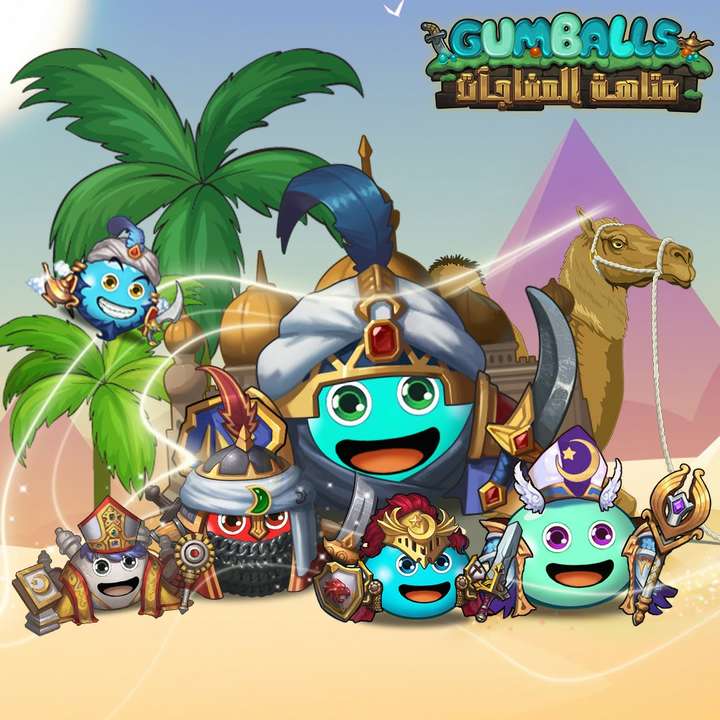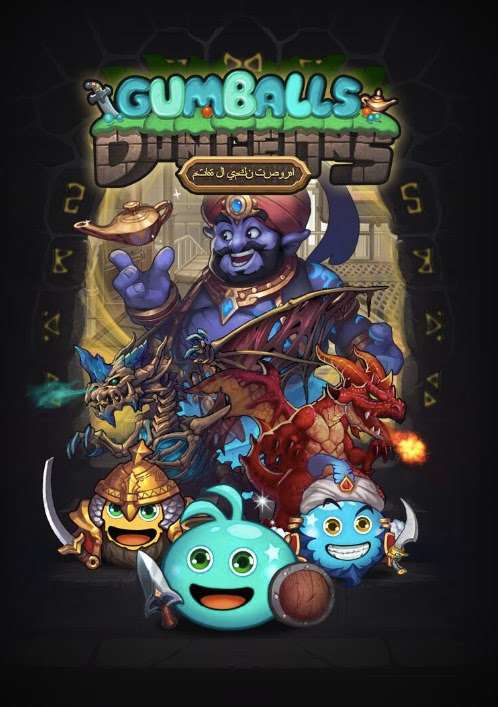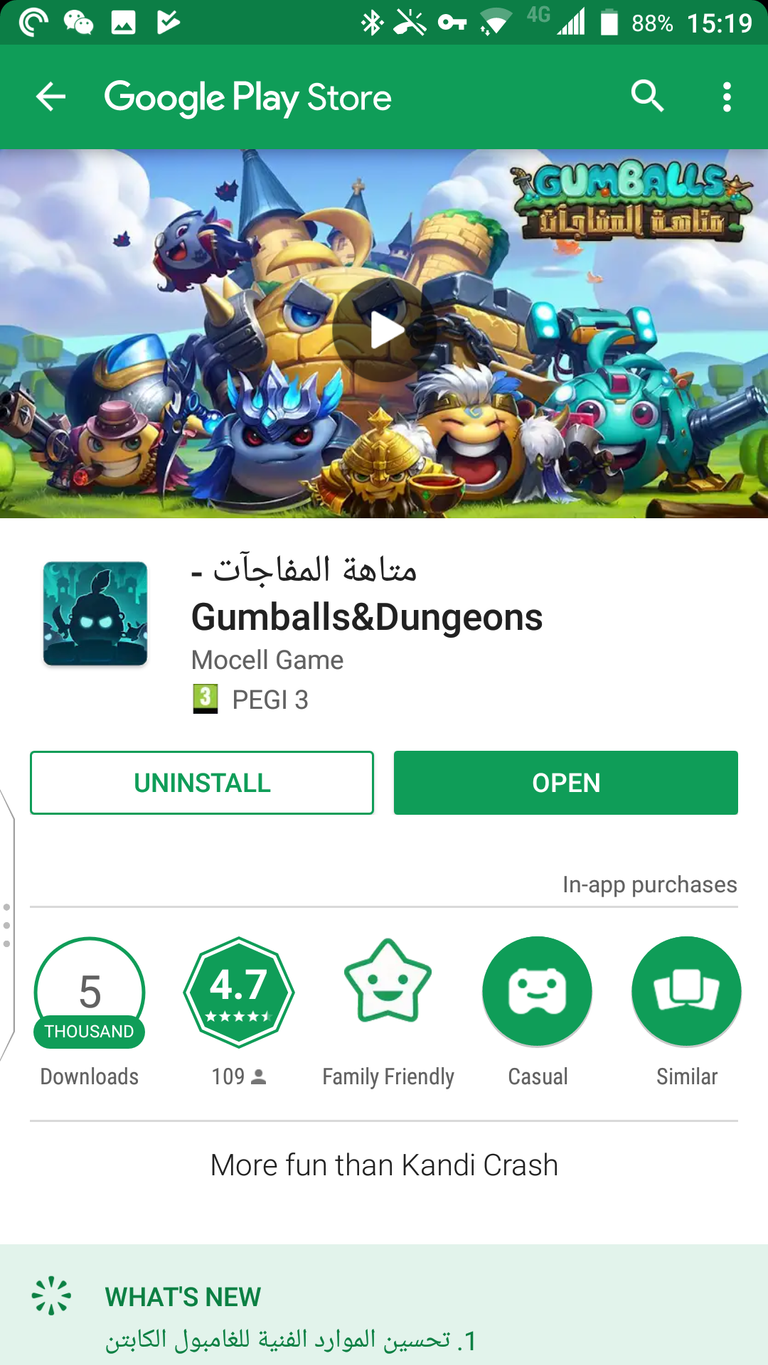MOCELL
What's More Fun than Combining Game Culture with History?
Mocell, a game studio for delivering both casual and hardcore pieces for MENA market.
BACKGROUND
Mobile game publishing project at Winroad Incubator
CHALLENGE
Expanding into niche gaming markets like the Middle East presents significant challenges, including market volatility, cultural nuances.
ROLE
Localization Manager
Highlights
Gumballs & Dungeons MENA
Thrilled to have collaborated with QCplay on localizing the charming yet challenging adventure game, Gumballs & Dungeons, for the MENA market. Proud to have led the localization project from start to finish. How it looks:
To achieve this, I put in significant effort through market research and user interviews. Understanding the destination is a crucial first step toward a successful journey.
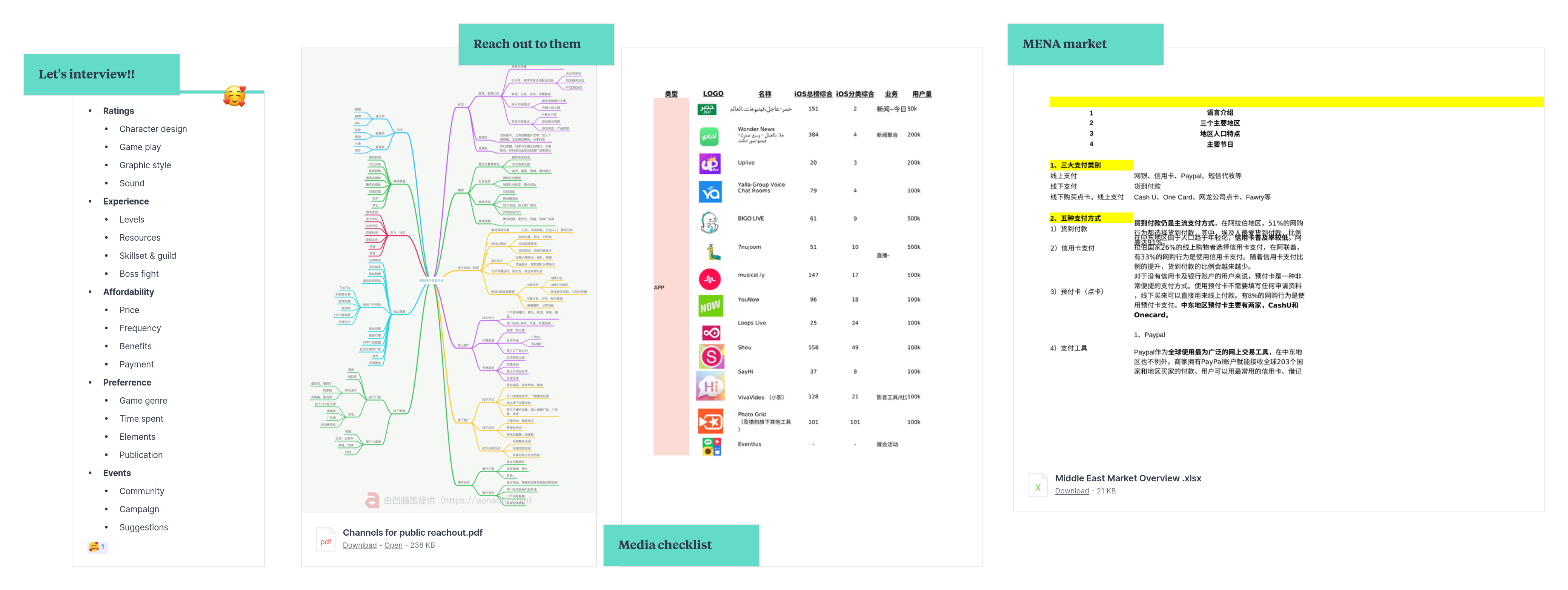
Next, I established clear localization standards and operating procedures to guide the team and maintain consistency.
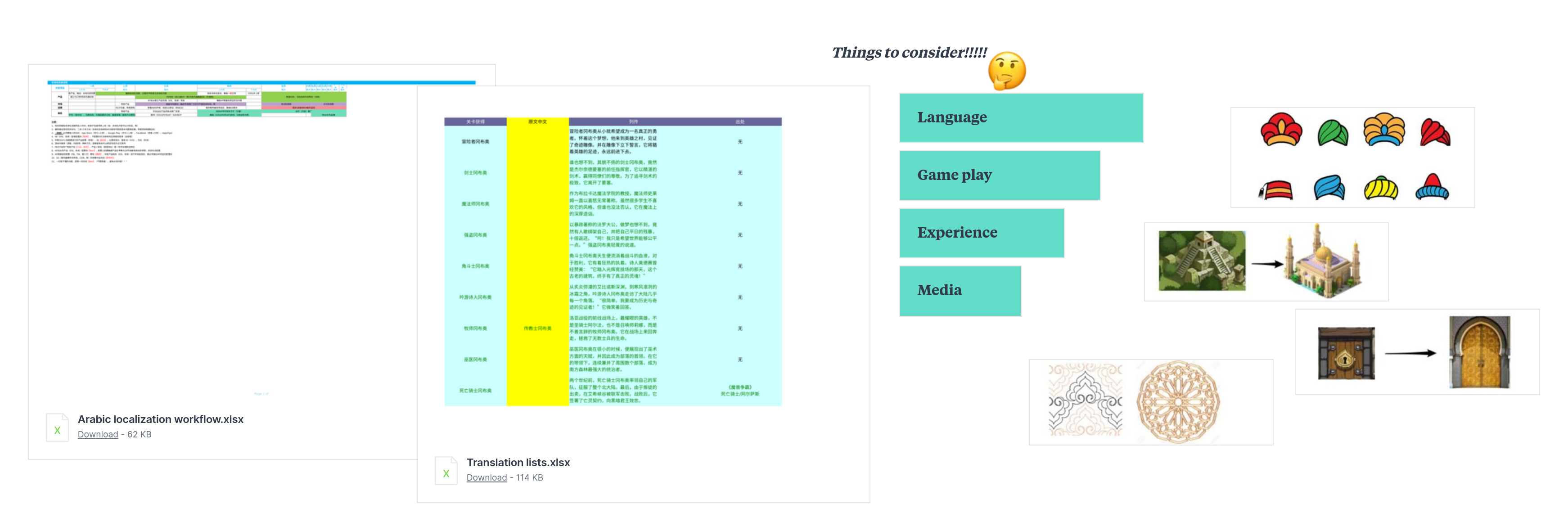


Cool discoveries
Understanding Middle East
- The MENA region is a broad geographical area encompassing 17 countries located in the Middle East and North Africa. This region is characterized by its diverse cultures and languages, with over 60 languages spoken across these nations.
- Ten Arabic catchphrases: Inshallah, Hamdullah, Shokran, Merhaba, Yalla, Habibi, Salam Ou Alaikoum, Masha'Allah, Naam, Saha.
- Arabic coffee, or Qahwa, has its roots in Arabia and was introduced as a pick-me-up by the Sufi mystic Kaldi in the 9th century. It's a symbol of warmth, camaraderie, and shared understanding in Arab culture. In Jaha mediation or matchmaking settings, a cup of coffee typically signals a successful outcome.
- Tea is popular in Morocco and parts of the Middle East. Black tea is the main variety, but green tea has also been introduced. Mint leaves are often added, making it a perfect post-meal drink. In the Gulf region, dried leaves like cardamom are added, and tea is typically served in an Istikana.
- Bakhoor is a traditional Arabian incense made from fragrant resins and oils. It's often burned to scent homes and has a long history of use in nomadic cultures.
- In Arab countries, it's common to see people socializing around water pipes (Argeeleh/Shisha). While the fragrant smoke billows, many non-smokers enjoy the experience, viewing it as a social custom rather than just a way to consume tobacco.
- Qat, or Yemeni betel nut, is a popular stimulant in Yemen. Chewing qat is a social activity and is often seen as a way to relax and unwind.
- Arab weddings are extended family affairs that can last for weeks. The Zaffeeh, a traditional procession with music and dance, is a festive way to announce the wedding to the community. Jordanian Zaffeeh celebrations are especially renowned for their vibrant atmosphere.

